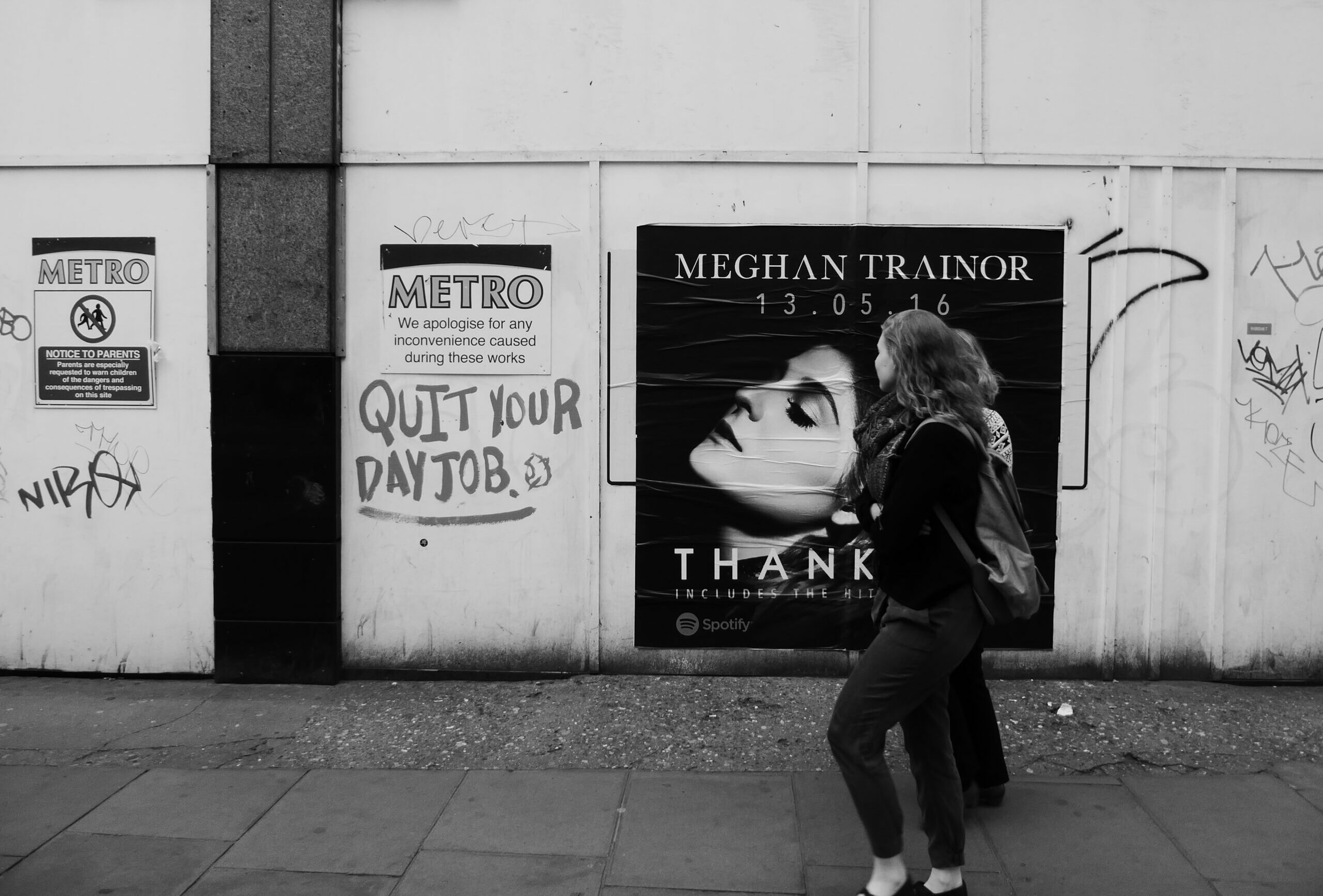When Will the ‘Great Resignation’ Turn Into the Great Strike?
Individual acts of refusal aren't enough.
by James Meadway
12 December 2021

Nearly a million people in Britain switched jobs over the summer, according to official figures – an all-time high for the country. Similar expressions of dissatisfaction with work are manifesting across the world in the so-called great resignation; from 24 million people in the US quitting their jobs since April, to China’s ‘lying flat’ movement (a protest against long working hours).
Some pundits have lauded this growing trend as the start of a burgeoning ‘anti-work’ movement. Such a response, however, is premature. Currently, as labour journalist Sarah Jaffe has noted, resistance is only taking place on an individual level, and isn’t involving any of the organisation or strategy that would constitute a movement.
it is a massive stretch to call what’s happening right now an “antiwork movement” and I say this as a reporter who wrote an antiwork book who would love there to be an actual antiwork movement
— Sarah Jaffe (@sarahljaffe) November 14, 2021
That said, there is potential for these individual acts to be turned into something greater. The same story is being told in stats, news reports and the immediate experiences of millions of people across the world: people, both young and old, and across an array of industries, are challenging how their work is performed, for whom, and under what conditions. Some are even challenging the need to work at all.
These people may not be organising in the ways that are familiar to historians of labour movements. But it is nonetheless important to understand how the great resignation is part of that history in order to work out how we should respond to it – especially in the UK, where the labour movement has been so powerless for so long.
Covid-19 has disrupted capitalism.
To understand why we are seeing so many people breaking out of their working habits, we need to first start by acknowledging the central place work itself has under capitalism. The foundation of any capitalist economy is the relationship between employer and employee, and managing and directing the work an employee does is how an employer generates profit. Disruptions to an employer’s control of the work process, therefore, threaten their ability to turn a profit, and thus are a critical problem for the system.
Covid-19 led to a seismic disruption to this power dynamic at work, creating the greatest challenge the capitalist system has faced in peacetime. Some of the largest falls in economic output ever recorded have happened in the last two years as a result of the disruption to this foundational relationship between employer and employee. At key points throughout 2020 and 2021, governments across the world directly intervened in how and where work has been performed. In the UK, the government imposed a lockdown on 23 March last year, banning all non-essential travel and legally enforcing the requirement to work from home where possible. Further disruptions are now being introduced, both in the UK and elsewhere, as the new Omicron variant spreads across the globe.
These changes to the way we work have allowed workers to claw back at least some control over their working lives. That space, while small, is rife with possibility.
Loyalty, exit, voice.
The current challenge to capital’s power being waged by workers looks very different to traditional modes of workplace resistance. While there has been a flurry of industrial action in the US and strikes at Amazon warehouses across Europe, individual action is the more typical response – a person quitting their job, or seeking early retirement, as we have seen in the UK.
Despite their differences, all of these actions express a form of opposition to the pure power of capital. A neat way to think about this is through the work of sociologist Albert O. Hirschman who, writing in the 1970s, suggested that people’s reactions to the demands of those in power could take three basic forms: loyalty, exit and voice.
What Hirschman means by ‘loyalty’ is obvious; loyalty is what typically governs workplace dynamics. As workers, we tend to accept what we are told, and often come up with justifications for why it must be good, or else sullenly resign ourselves to it anyway.
‘Exit’ is a rarer response, and occurs when a worker rejects a boss’s demand and looks for a different social situation – leaving a job would be the most common example of this.
‘Voice’ is rarer still – and the most complex of Hirschman’s categorisations. It occurs when a worker not only rejects a demand, but protests against it, choosing to stay in the situation and push back against authority.
Capitalism has eroded collectivity.
For years, the dominant response from workers in the UK, and beyond, has been loyalty. With union power severely depleted, for most people, the possibility of refusing work has been very limited – job vacancies are relatively scarce and the threat of unemployment is often too tangible for people to make a move. Not to mention, of course, that most people are not rich enough to simply quit working.
The pandemic has shifted this dynamic, disrupting capital’s control over work, and creating room for workers to push back; tight labour markets, with many vacancies but relatively few workers to fill them, are the most visible sign of this.
Given the state of unions, both in the UK and abroad, it’s unsurprising that most people are choosing to ‘exit’ rather than ‘voice’. Union membership in the UK, especially in the private sector, has plummeted, with few young people joining. This has meant that the capacity to act collectively, which unions provided, has been seriously weakened.
Even more fundamentally, the very idea of collective action has been weakened; most people in work are not in a union, and, as things stand, would not consider joining one. This, of course, doesn’t mean people have stopped fighting back against their bosses – just that the methods to do so have become more individualised.
The Tories love the office.
Because the response to our new circumstances is mostly individualised, the struggle between boss and worker has been largely obscured – a collective action like a strike, for example, would make this conflict very clear.
In the place of such collective action we are now seeing a different kind of struggle being played out, one that takes place on an ideological level rather than a material one. Instead of, for example, employers trying to break trade unions, we are seeing these tensions between boss and worker play out as arguments over the very idea of what work is and should be.
While workers in the UK largely want to work from home and reduce their working hours, the Tory establishment has become a staunch defender of the office – from Boris Johnson burbling about the joys of office life, to the Tory press howling for a return to the office for much of the year and deriding those who work from home as “workshy refuseniks” and “lazy TWTs” who are failing to “work properly”. This is not even a fair accusation since people working from home usually end up working longer hours.
The overall effect of the establishment’s attack on work is to push an argument for a particular kind of capitalist normality – one in which workers are made to obey the demand to be in a specific place, at a specific time, in a building that is not their own. It is about symbolically reasserting the power of capital over labour.
This attack, however, is ultimately futile; it is increasingly accepted that working from home will be a permanent feature of life – as the government’s new Covid-19 guidelines show.
Responding to the new terrain.
It is unlikely any of these trends will die away, if for no other reason than that Covid-19 itself isn’t going to disappear. The challenge for the left then, particularly in Britain, is in dealing with this new political terrain.
In navigating this, I suggest we take a three-pronged approach. First, at the level of ideology and ideas – which is, for now, where most of the fight will be taking place. We must push back on the argument that those seeking different forms of employment are lazy, that the traditional 9-to-5 is the ‘best’, most virtuous kind of work, and that work should be performed in an office. We should instead start to demand that work be performed, as far as possible, under the control and direction of those who perform it – including the right to work from home.
On an economic level, we should be campaigning for higher pay, but also better conditions, including reduced hours. Alongside this we should be calling for higher benefits payments, including a universal basic income that would help give many more workers the option to choose different hours and different work. We should also be seeking to extend the potential benefits of working from home across the working class, where people want this flexibility but are often denied it. If jobs cannot be performed outside of the workplace – very many can’t – then reduced hours with no loss of pay might be an option.
On an organisational level, there is a pressing, urgent need to rebuild trade unions – not, especially, in the public sector, where membership remains high, but in all those parts of the private sector that unions are not yet reaching. In the UK, the activities of newer organisations like the IWGB have been exemplary in this respect, but it is critical that much bigger, older organisations like Unite push hard to extend organisation and are creative about how they fight.
Covid-19 has demanded a drastic reorganisation of how we work. But in forcibly reorganising our lives, it has opened up the space for thinking about and fighting for alternatives. Millions of people are now having to think differently about work; some are already taking action. But to create really meaningful change, it is vital we turn these individual acts of refusal into collective power.
James Meadway is an economist.


